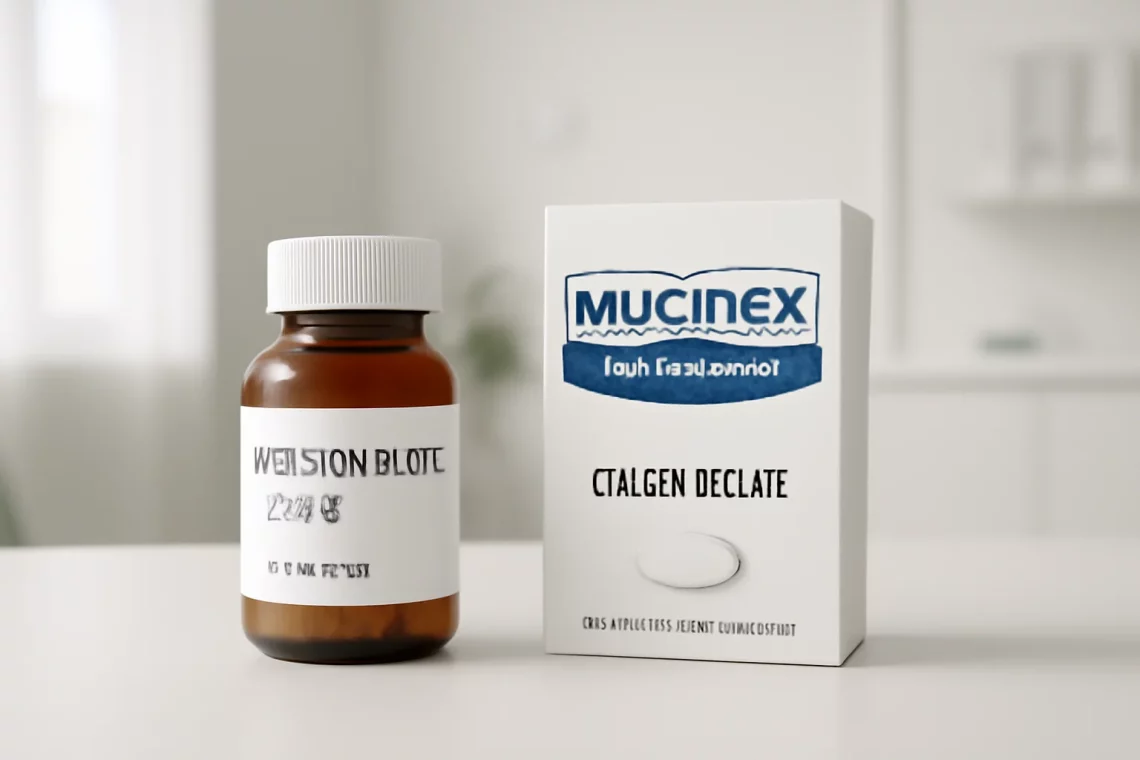
Benzonatate vs Mucinex: Which Cough Relief is More Effective?
When it comes to managing coughs and respiratory discomfort, many people find themselves navigating a wide array of over-the-counter medications. Among these, Benzonatate and Mucinex have gained popularity for their effectiveness in alleviating symptoms associated with colds, allergies, and respiratory infections. Both medications serve distinct purposes and work in different ways, making it essential for consumers to understand their unique properties and potential uses.
Benzonatate, a non-narcotic cough suppressant, can help individuals struggling with persistent coughs by targeting the cough reflex in the brain. Meanwhile, Mucinex, which contains guaifenesin, is primarily an expectorant that aids in thinning mucus, making it easier to expel from the lungs. This difference in action highlights the importance of choosing the right medication based on specific symptoms and underlying conditions.
Understanding the nuances between these two medications can empower individuals to make informed decisions about their health. This knowledge is crucial, especially during seasons when respiratory illnesses are rampant. As we delve deeper into the comparison between Benzonatate and Mucinex, it becomes clear that an informed choice can lead to more effective symptom management and a quicker path to recovery.
Benzonatate Overview
Benzonatate is a prescription medication primarily used as a cough suppressant. It works by numbing the throat and lungs, which helps to reduce the cough reflex. This is particularly beneficial for individuals who experience persistent coughs due to various conditions, such as bronchitis, pneumonia, or postnasal drip.
The medication is typically available in capsule form and is taken orally. One of the key advantages of Benzonatate is that it does not contain narcotics, which means it has a lower potential for addiction compared to some other cough suppressants. It is essential for patients to follow the prescribed dosage carefully, as taking higher amounts than recommended can lead to serious side effects.
Benzonatate is known for its relatively rapid onset of action, often providing relief within 15 to 20 minutes after ingestion. This makes it an appealing option for those seeking immediate relief from a nagging cough. However, users should be aware of potential side effects, which may include dizziness, drowsiness, and gastrointestinal issues. In rare cases, allergic reactions can occur, presenting as rash, itching, or difficulty breathing.
Patients should also be cautious about using Benzonatate in conjunction with other medications that depress the central nervous system, as this can heighten the risk of adverse effects. It is advisable to consult with a healthcare provider before combining treatments to ensure safety and efficacy.
Overall, Benzonatate serves as a valuable tool in managing cough symptoms, particularly for those who have a dry cough and do not require the mucus-thinning properties of an expectorant.
Mucinex Overview
Mucinex, containing the active ingredient guaifenesin, is widely recognized as an effective expectorant. Unlike Benzonatate, which suppresses the cough reflex, Mucinex works by loosening and thinning mucus in the airways. This action makes it easier for individuals to expel mucus through coughing, thereby clearing congestion and facilitating easier breathing.
Mucinex is available in various formulations, including tablets, liquid, and extended-release forms. This variety allows consumers to choose the option that best fits their needs. One of the significant benefits of Mucinex is its dual action; it not only helps alleviate cough but also addresses the underlying mucus buildup that often accompanies respiratory conditions.
The onset of Mucinex’s effects may take a bit longer than Benzonatate, typically requiring around 30 minutes to an hour for users to feel relief. However, its effects can last for an extended period depending on the formulation used. Side effects of Mucinex are generally mild and may include nausea, vomiting, or dizziness.
A key point to note is that Mucinex is often recommended for individuals experiencing productive coughs, where mucus production is significant. It can be particularly beneficial during cold and flu seasons when congestion is prevalent. For those dealing with chronic respiratory conditions, Mucinex can be integrated into a broader treatment plan to help manage symptoms effectively.
It is crucial for users to stay adequately hydrated while taking Mucinex, as this can enhance its effectiveness in thinning mucus. As with any medication, it is advisable to consult with a healthcare professional to determine the most appropriate treatment plan based on individual symptoms and health history.
Comparing Benzonatate and Mucinex
When comparing Benzonatate and Mucinex, the primary distinction lies in their mechanisms of action and their intended uses. Benzonatate’s role as a cough suppressant makes it ideal for individuals who are experiencing a persistent, dry cough that disrupts daily activities or sleep. In contrast, Mucinex serves as an expectorant, making it better suited for those dealing with a productive cough, where mucus is present and needs to be expelled.
The choice between these two medications may depend on the specific symptoms a person is experiencing. For instance, someone with a dry cough due to allergies might find immediate relief with Benzonatate, while another individual suffering from a cold with significant mucus production may benefit more from Mucinex.
Additionally, the side effect profiles of the two medications can influence decision-making. While Benzonatate may cause drowsiness or dizziness, Mucinex is generally considered to have milder side effects. This difference may be particularly important for individuals who need to maintain alertness throughout the day.
It is also worth noting that some patients may find that a combination of both medications, under the guidance of a healthcare provider, can provide comprehensive symptom relief. For example, using Benzonatate to suppress a dry cough while taking Mucinex to manage mucus can be an effective approach for some individuals.
Ultimately, the best choice will depend on individual health needs, symptom presentation, and any existing medical conditions or medications. Consulting with a healthcare professional is essential to ensure that the selected treatment aligns with one’s overall health goals and circumstances.
Conclusion
In summary, both Benzonatate and Mucinex offer valuable options for managing cough symptoms, albeit with different mechanisms and applications. Understanding the distinctions between these medications can assist individuals in making informed choices that align with their specific health needs.
Whether opting for Benzonatate’s cough-suppressing capabilities or Mucinex’s mucus-thinning properties, effective symptom management is possible. However, it is crucial to approach any medication with caution and to consult with a healthcare provider to ensure safety and efficacy.
Remember, this article is not a substitute for medical advice. If you have health concerns or questions about medication, please consult a healthcare professional for personalized guidance.




